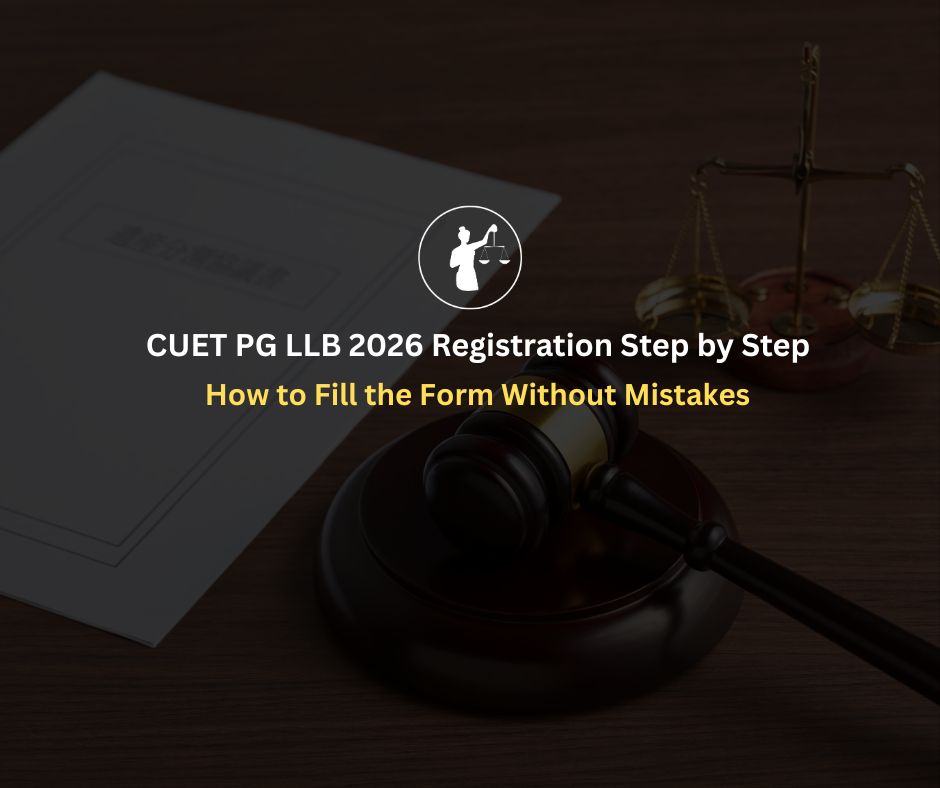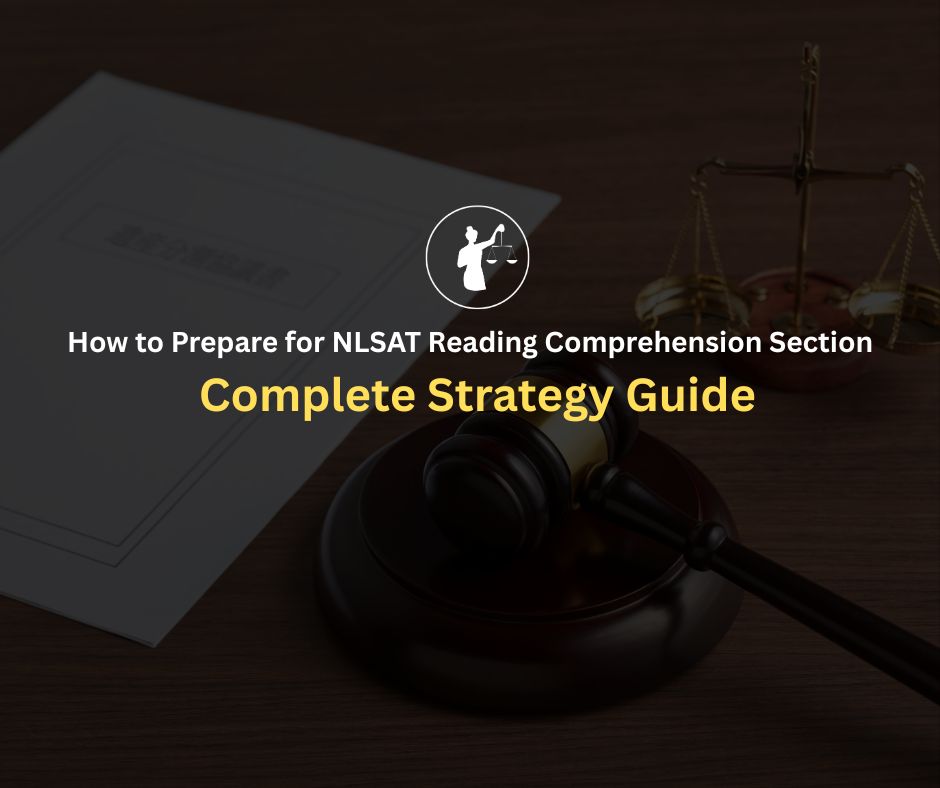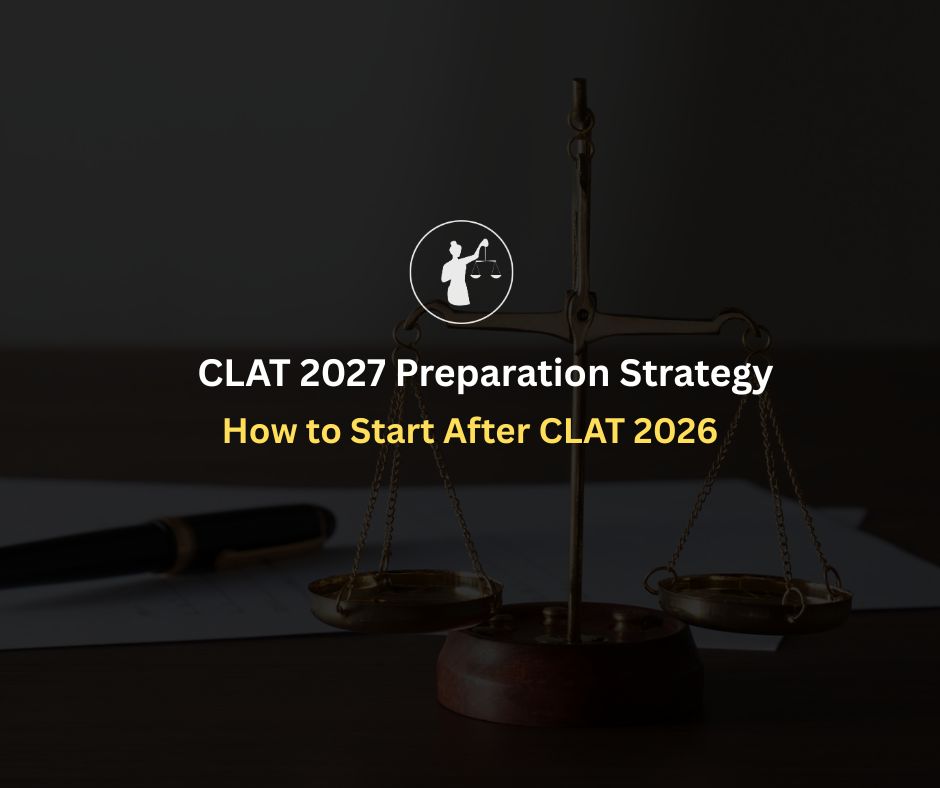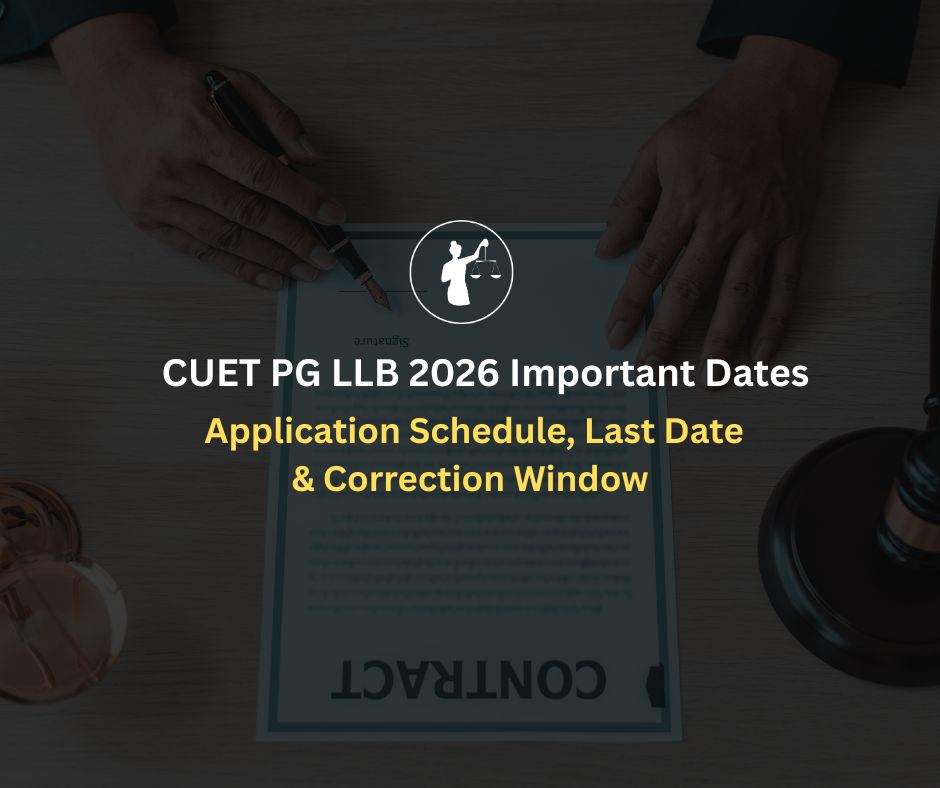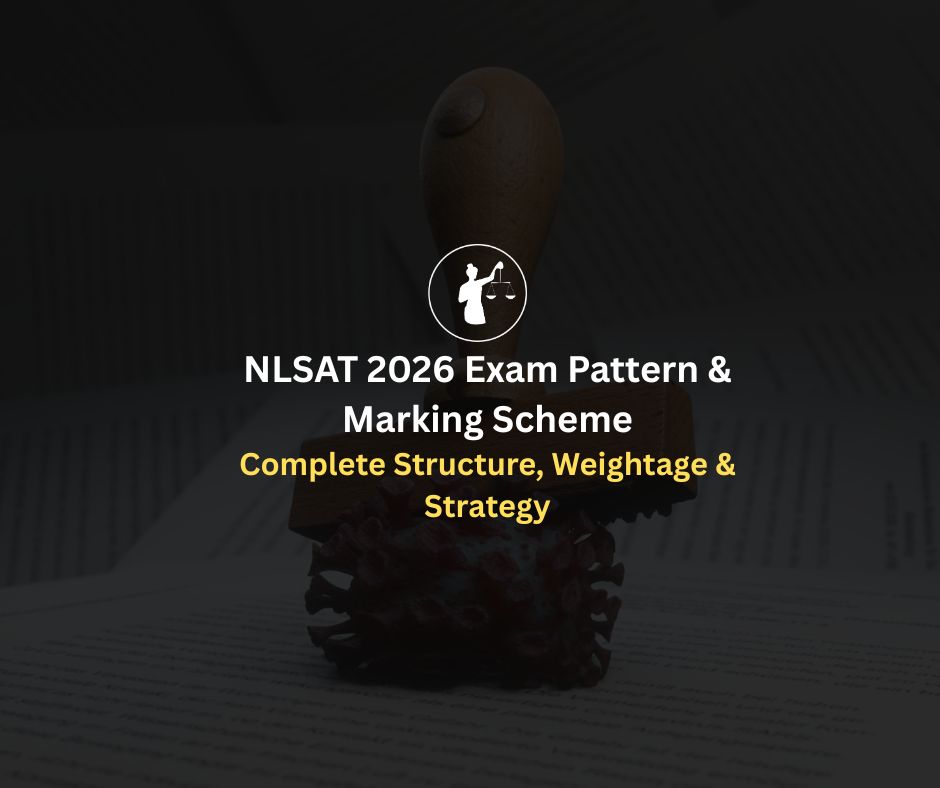As the CUET LLB 2025 approaches, law aspirants are gearing up to secure a spot in prestigious institutions like Delhi University. The CUET LLB exam is crucial for gaining admission into DU’s LLB program, and understanding the exam pattern can make all the difference in your preparation.
In this blog, we’ll break down the CUET LLB exam pattern and provide strategies to maximize your marks in each section.
Creating an Effective Study Plan for CUET PG DU LLB 2025
The CUET DU LLB exam follows a structured format designed to test a candidate's aptitude in various areas. The key components of the exam are:
Exam Mode: Computer-Based Test (CBT)
Duration: 2 hours
Total Questions:
75 multiple-choice questions (MCQs)
Marking Scheme:
+4 for each correct answer, -1 for incorrect answers
Total Marks: 300
The exam is divided into four major sections:
English Language Comprehension
General Knowledge and Current Affairs
Legal Aptitude and Legal Reasoning
Logical and Analytical Reasoning
Computer Basics
Let’s dive into how to approach each section for maximum marks.
The English Language Comprehension section is a crucial part of the CUET LLB 2025 exam, designed to test a candidate's ability to read, understand, and analyze written English. With around 25 questions in this section, candidates can maximize their marks by focusing on two core areas: reading comprehension and language skills like vocabulary and grammar.
Reading Comprehension
Vocabulary and Grammar
Sentence Correction
The reading comprehension questions in CUET LLB or DU LLB 2024 test your ability to quickly read and grasp the main ideas and supporting details from a passage.
These questions often include identifying the central theme, understanding the author’s tone, and answering inference-based questions.
Key Strategies for Reading Comprehension:
Preparation Tip: Make it a habit to attempt at least one reading comprehension passage daily. Choose diverse topics such as current events, law-related articles, or editorials from newspapers like The Hindu or The Indian Express. These sources will not only improve your reading speed but also expose you to complex writing styles and ideas.
The CUET LLB 2025 exam also tests your command over the English language through questions related to vocabulary and grammar. This includes questions on synonyms, antonyms, idioms, phrases, sentence completion, and correction.
Key Strategies for Vocabulary and Grammar:
Preparation Tip: Use mobile apps like Vocabulary Builder or Magoosh to learn new words daily and revise commonly tested grammatical rules. To reinforce grammar concepts, practice exercises from popular books like Wren and Martin’s English Grammar.
The sentence correction questions in CUET LLB examine your ability to spot grammatical errors and improve the overall clarity and coherence of a sentence. These questions assess your understanding of grammar rules and sentence structure.
Key Strategies for Sentence Correction:
Start by familiarizing yourself with common sentence correction patterns like incorrect use of tenses, subject-verb disagreement, misplaced modifiers, and awkward sentence structure.
In sentence correction, often the goal is to improve the clarity and flow of a sentence. Learn to recognize when a sentence is unnecessarily wordy or unclear and how to revise it to enhance meaning.
Complete Syllabus Breakdown for CUET PG DU LLB 2025
The General Knowledge and Current Affairs section of the CUET LLB 2025 exam plays a pivotal role in determining your overall score. With around 25-30 questions, this section assesses your awareness of national and international events, as well as your grasp of static general knowledge. Given the broad scope of the questions, it is essential to have a strong strategy to approach both current affairs and static GK effectively.
In this section, we’ll explore how you can approach each aspect of General Knowledge to maximize your score, particularly for law-related exams like CUET LLB and DU LLB.
Current Affairs
Static General Knowledge (GK)
The current affairs portion of CUET DU LLB 2024 revolves around recent developments in various fields such as law, politics, economics, social issues, science and technology, and international relations. This section tests not only your knowledge but also your ability to connect current events with relevant legal and political implications.
Key Strategies for Current Affairs:
The static GK portion of CUET LLB 2025 focuses on longstanding facts and information that do not change over time, such as history, geography, Indian polity, and general science. While current affairs are time-sensitive, static GK requires steady revision and a structured approach to cover all major topics.
Key Strategies for Static GK:
CUET PG for DU LLB (COQP11): Eligibility, Syllabus, Pattern, Preparation Tips, etc for 2025
The Legal Aptitude and Legal Reasoning section is one of the most critical components of the CUET LLB 2025 exam, comprising around 25-30 questions. This section assesses your understanding of legal principles, the Indian Constitution, and your ability to apply legal reasoning to specific scenarios. Whether you're aiming for CUET LLB or DU LLB 2024, mastering this section will significantly improve your chances of success.
Indian Constitution
Legal Propositions
Scenario-Based Legal Reasoning
One of the primary components of the Legal Aptitude and Legal Reasoning section is identifying and applying legal principles to given scenarios. These questions are designed to evaluate your logical reasoning skills and your understanding of the law. They typically present a legal proposition followed by a set of facts, and your task is to apply the principle to the situation to arrive at a conclusion.
Key Strategies for Legal Propositions:
The CUET LLB 2025 and DU LLB exams place great emphasis on the Indian Constitution. Understanding the key articles, landmark judgments, and foundational principles is crucial for this section. The Constitution forms the backbone of Indian law, and many questions will revolve around its interpretation and application.
Key Strategies for Constitutional Knowledge:
Scenario-based legal reasoning questions present a set of facts or a hypothetical legal situation and require you to apply legal principles to arrive at a logical conclusion. These questions are designed to test your critical thinking and legal reasoning abilities.
Key Strategies for Scenario-Based Legal Reasoning:
The Logical and Analytical Reasoning section of the CUET LLB 2025 exam is crucial for assessing your ability to think critically and solve complex problems. This section typically includes around 20-25 questions, covering various reasoning topics such as syllogisms, logical sequences, puzzles, and more. Success in this section depends on your speed, accuracy, and ability to recognize patterns quickly. Whether you're preparing for CUET LLB or DU LLB 2024, a strong approach to logical reasoning can significantly enhance your overall score.
Syllogisms
Logical Sequences
Blood Relations
Coding-Decoding
Logical sequences are one of the core components of the CUET LLB 2025 reasoning section. These questions assess your ability to follow patterns, decode sequences, and solve seating arrangements and other puzzle-based problems.
Key Strategies for Logical Sequences:
Syllogisms and critical reasoning questions are designed to test your ability to reason through logic-based statements and draw valid conclusions. These questions often involve statements that lead to specific conclusions, requiring you to understand the underlying logic of the relationships between the premises.
Key Strategies for Syllogisms:
Blood relations questions test your ability to determine family relationships based on given information. These questions are often tricky, as they require a clear understanding of relationships and logical reasoning to arrive at the correct answer.
Key Strategies for Blood Relations:
When faced with blood relations questions, quickly sketch out a family tree to visualize the relationships between individuals. This will help you avoid confusion and ensure you arrive at the right answer.
Familiarize yourself with common types of blood relation questions, such as identifying the relationship between two people or determining how one person is related to another based on given clues.
Preparation Tip: Use practice books or online platforms to regularly solve blood relations questions. This will help you build confidence in visualizing complex relationships and answering questions faster.
Coding-decoding questions test your ability to recognize patterns in letters or numbers that have been encoded in a specific way. These questions assess both logical thinking and pattern recognition.
Key Strategies for Coding-Decoding:
The key to solving coding-decoding questions is to quickly identify the pattern used to encode the information. This could involve shifting letters in the alphabet, substituting numbers, or using a specific set of rules.
Coding-decoding questions come in various formats, such as letter-to-letter, number-to-letter, and symbol-based coding. Make sure to practice all types to become familiar with different patterns.
5. Computer Basics for CUET LLB 2025
The Computer Basics section in the CUET LLB 2025 and DU LLB 2024 syllabus evaluates your understanding of fundamental computer concepts. In an increasingly digital world, having a solid grasp of essential computer knowledge is not just an advantage but a necessity. This part of the exam ensures that candidates are familiar with the basics of computers, which are widely used in legal research, drafting documents, and courtroom technology.
Computer hardware and software
Operating systems (Windows, Linux, macOS)
Internet and networking concepts
Microsoft Office Suite (Word, Excel, PowerPoint)
This section assesses your knowledge of the components of a computer system and how software interacts with the hardware to perform tasks.
Key Concepts:
Learn about the main components of a computer system, such as the CPU, RAM, storage devices (hard drive, SSD), input/output devices (keyboard, mouse), and peripherals (printers, scanners).
Understand the types of software—system software (like operating systems) and application software (like word processors or web browsers). Familiarize yourself with popular software tools used in the legal field.
Preparation Tip: Study the basic functions of hardware components and how they interact with different software systems. For a more detailed understanding, refer to beginner guides on computer systems and software.
Operating systems are crucial for managing a computer's resources and provide a user interface for interacting with the system. For CUET DU LLB 2024, you need a basic understanding of popular operating systems like Windows, Linux, and macOS.
Key Strategies:
Familiarize yourself with the basics of the Windows operating system, as it is widely used in offices and legal firms. Learn how to manage files, use the command prompt, and configure system settings.
While less common in everyday use, Linux is a powerful open-source OS, and knowing its basic commands could give you an edge.
Apple's macOS is widely used in some industries. Understanding how macOS functions may be useful for document management in legal environments.
Preparation Tip: Spend time using different operating systems to get comfortable with their user interfaces and basic functions. Explore tutorials or guides to deepen your knowledge.
This section tests your understanding of how the internet works, basic networking principles, and web technologies.
Key Concepts:
Learn about browsers, URLs, search engines, and the structure of web pages (HTTP/HTTPS protocols).
Understand basic networking concepts such as LAN, WAN, Wi-Fi, routers, IP addresses, and the role of ISPs (Internet Service Providers).
Learn how data is stored and shared online via cloud services like Google Drive, Dropbox, and OneDrive.
Preparation Tip: Read about internet functionality, web browsing safety, and basic networking principles from beginner IT guides or online courses to prepare for the CUET LLB exam.
Legal professionals regularly use the Microsoft Office suite for drafting documents, creating presentations, and managing data. A working knowledge of Word, Excel, and PowerPoint is essential for performing basic tasks in the legal environment.
Key Skills:
Learn how to format documents, use templates, track changes, and insert references (such as footnotes or citations) in legal documents.
Familiarize yourself with spreadsheet management, creating charts, and using formulas, which are useful for tracking case details or deadlines.
Practice creating professional presentations, adding visuals, and organizing slides for presentations in courtrooms or seminars.
ACE CUET PG LLB WITH MENTORSHIP FROM TOPPERS
The Computer Basics section of the CUET LLB 2025 and DU LLB 2024 exams is designed to ensure that candidates have a foundational understanding of essential computer concepts. From hardware and software knowledge to operating systems and the Microsoft Office suite, this section covers vital skills necessary in the digital age.
Mastering these basics not only helps you score well in the exam but also equips you with the technical skills required in today’s legal profession. Regular practice, coupled with hands-on experience with different computer systems and applications, will help you tackle this section confidently and maximize your overall score.
